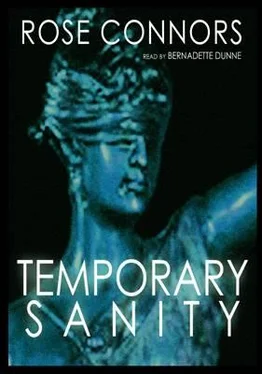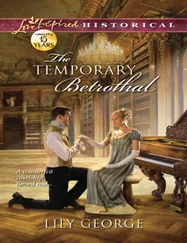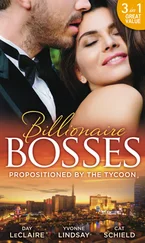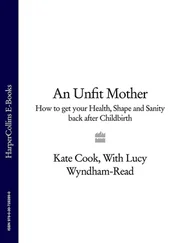Harry is a lot of things, but a fast-talking creep he’s not. He stops moving and winks at me. “You’re still known as the law-and-order lady,” he says. “They might listen to you.”
I roll my eyes at Harry, but the Hammond relatives, it seems, are serious. Buck’s mother steps forward, a petite, gray-haired woman wearing her Sunday best in spite of the snowstorm. She has tears in her eyes. “Please,” she says, taking Patty’s hand in hers, “it might make a difference.”
The pendulum clock on the wall behind the jury box says it’s almost one-thirty. I have half an hour to prepare the opening statement for the most difficult trial I’ve ever faced.
“Okay. I’ll open. That means I’d better get to work.”
The small herd of family members heads for the courtroom doors, but I stop Patty as she passes. “I’m going to need some help from you,” I tell her.
“From me?”
“Yes. Get back here a few minutes early and I’ll explain.”
“Okay,” she says. Nothing surprises Patty Hammond anymore. She’s stopped asking questions.
Patty and her sad family head down the aisle and I set up at the defense table. Harry waits until the last of the relatives is gone, then leans over and brushes his lips against the back of my neck.
The tingle down my spine isn’t going to do anything good for my opening statement.
“Get lost, Harry.” I swat at him. “I have work to do.”
“Okay.” He laughs. “Lucky for you this old dog needs food. What can I bring you?”
“Coffee.”
“Is that all?”
“Yup.”
“Nothing to eat?”
I turn around to face him and his expression makes me laugh. Not eating when offered the opportunity is a concept Harry can’t grasp.
“Oh, I get it,” he says, headed for the courtroom doors. “You don’t fool me. You’re every bit as hungry as I am.” He smiles at me over his shoulder, then narrows his eyes. “But it’s the hungry lioness who kills.”
Jury nullification. I knew the day it happened that Buck Hammond’s defense attorney would ask the jury to nullify the law, to acquit Buck Hammond even though the facts that prove his guilt are uncontroverted. I felt sorry, that day, for the poor lawyer who would end up in that unfortunate position. I would have felt sorrier if I’d known I was that lawyer.
That’s not our stated defense, of course. Officially, we’re relying on a temporary insanity plea. These jurors may conclude, if they so choose, that Buck Hammond was insane when he pulled the trigger. We’ll present expert testimony to that effect. The jurors might find that Buck was unable, during that isolated time span, to distinguish right from wrong, to conform his behavior to the requirements of the law.
But generally speaking, jurors don’t like the temporary insanity defense. Neither do I. It’s too convenient, too tidy. More important, Buck Hammond doesn’t like it. He won’t cooperate with that portion of our defense, he says. He’ll tell the jurors he knew exactly what he was doing. He’ll say he knew he was breaking the law, he did it anyway, and given the opportunity, he’d do it again tomorrow. Further evidence of insanity, I might have to argue.
Not now, though. Now it’s my job to paint with broad strokes, to give these jurors the gut-wrenching facts they should bear in mind as they listen to the prosecution’s witnesses. It’s my job to invite each one of them to stand in Buck Hammond’s shoes as they evaluate the testimony against him. It’s my job to help them reach a conclusion they almost certainly won’t want to accept: Put in Buck’s circumstances, any one of us is capable of pulling the trigger.
Stanley ended his opening statement with the television footage of the predawn shooting. The panel sat in sober silence as they watched the chopper land at Chatham Municipal Airport amid squad cars, canine units, and television crews. The jurors were motionless as Hector Monteros emerged, cuffed, flanked by U.S. marshals, their weapons drawn. The panel held its collective breath when Monteros descended to the floodlit runway and Buck Hammond stepped from the shadows of the airport’s only hangar, six feet away.
Not one juror blinked when Buck Hammond raised his hunting rifle and took careful aim. They flinched, though, and some of them raised closed fists to their mouths, when Buck fired and the bullet found Hector Monteros’s temple. Not one of them breathed, it seemed, as Monteros bled to death-in vivid color-on the airport runway.
Stanley would have shown that videotape a hundred times if he could have. The judge limited him to two runs during the course of the trial. Stanley used the first one today, and my bet is he’ll wrap up his closing argument with the second. J. Stanley Edgarton III knows what he’s doing.
When Stanley sits down, I leave my seat and roll the television table away from the jury box. I station myself in front of the panel, but I don’t speak. Not until the silence grows uncomfortable. Not until a few of the jurors start to squirm.
“Seven-year-old Billy Hammond lived near the beach his entire short life,” I tell them quietly. “He loved to fish.”
Twenty-eight eyes are glued to mine just as they were glued to Stanley’s moments ago. These eyes remind me why I once loved the practice of law, why I once believed there was no higher calling. Even now, jaded as I am, I stand in awe of this particular piece of the puzzle that is our criminal justice system. Whatever failings the system may have-and they are legion-the jury is its jewel. These fourteen conscientious people will struggle with every fiber of their beings to do the right thing.
“On June nineteenth,” I tell them, “just six months ago, seven-year-old Billy Hammond went into the kitchen with his fishing pole and bait bucket. He told his mom he was headed to the beach.”
I gesture toward Patty Hammond, who is seated in the front row, directly behind her husband. The jurors all look in her direction, and she is ready.
Patty nods to the panel, making eye contact with one juror at a time, just as we planned. She’s a striking woman, with classic cheekbones and thick brown hair cropped close in a boyish cut. But at the edges of her eyes and the corners of her mouth, the ravages of grief are evident. She is much older than her twenty-nine years, much older than she was on June 18.
“You’ll hear from Patty Hammond during this trial,” I tell the panel. One by one, their gazes leave Patty-reluctantly, it seems-and return to me. “She’ll tell you she gave little Billy a Popsicle and a kiss that morning.”
I pause and look at each of them. “She never saw him again. And she never will.”
The creak of Stanley’s chair tells me he’s getting to his feet even before he clears his throat. “Your Honor,” he whines, “I hate to interrupt my Sister Counsel’s opening statement. Really I do. But we’re getting off-track, I’m afraid, heading awfully far afield.”
Stanley’s objection is bogus. Having raised a temporary insanity defense, we’re entitled to discuss almost everything that had an impact on Buck Hammond’s state of mind during the days leading up to the shooting. The fact that I’d like the jurors to use this evidence to nullify the law is beside the point. But the objection makes me wonder if Stanley is more worried about the possibility of nullification than I thought.
Judge Long knows I’m within proper limits; he doesn’t need me to tell him. I’d rather the jurors hear it from him anyway. I face the bench and stare at him, but say nothing.
Judge Long leans on his elbows and rests his chin on his fingertips, white cuffs and gold cufflinks sandwiched between the black of his robe and the near-black of his hands. “I’ll allow it,” he says. “It goes to the defendant’s state of mind, an issue that’s paramount in this trial.”
Читать дальше












